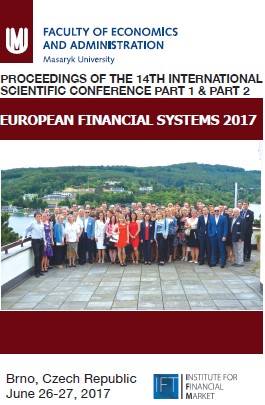Impact of high frequency trading on volatility in short run and long run
Impact of high frequency trading on volatility in short run and long run
Author(s): Juraj Hruška
Subject(s): International relations/trade, Methodology and research technology, Financial Markets
Published by: Masarykova univerzita nakladatelství
Keywords: volatility; high frequency trading; Markov switching model;
Summary/Abstract: Computers have overtaken the most of tasks in intraday trading on modern exchanges. From stock picking to deal timing, optimized algorithms are crucial in trading process. This phenomenon is apparent on the spot as well as on derivative markets. In this paper, we consider the effects of high frequency trading on the short term volatility. The aim of the paper is to investigate the links between high frequency trading (HFT) and spot volatility. High frequency with presence of market microstructure noise and also low frequency data from German stock market are considered. We employ Markov switching models to estimate the relationship of dynamics in stock returns and changes in the activities of high frequency traders. Activity of algorithmic traders is estimated by proxy variables based on the average size of trades. The problem of optimal sampling biases is avoided by incorporating Bundi-Russell (2008) test and test of Lagrangian multipliers. Market microstructure noise can cause biasness in the estimates of the empirical volatility measures and models based on such variables.
- Page Range: 266-273
- Page Count: 8
- Publication Year: 2017
- Language: English
- Content File-PDF

